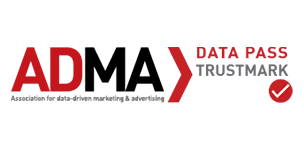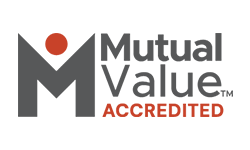G&C Mutual Bank is a proud partner of Scams Awareness Week 2020. This year’s theme focuses on personal information and identity crime, with the slogan Be yourself. Don’t let a scammer be you. The campaign raises awareness of common scam types such as hacking and malware.
What are hacking and malware?
Malware (malicious software) is used by cybercriminals to harm your computer system or network. Scammers can trick you into installing malware on your device via spam email, links or attachments, or via malicious websites that can attempt to install malware when you visit, or via an application that you install yourself, such as a bogus anti-virus or security product. When malware has been installed, it allows the cybercriminal to access or hack into your computer, mobile device or network. Once they have hacked your device, they can access your personal information, change your passwords, track what you are doing online, and restrict your access to your system. They may be able to hold your computer to ransom or install other programs without your knowledge.
As soon as they have access to your personal information, scammers can commit identity crime.
How to protect yourself
- Don’t open or click
- Don’t open attachments or click on links in unexpected texts, social media messages, pop-up windows or emails, even if they appear to come from a trusted source.
- Find and verify
- If unsure, contact the person, business or agency using contact details that you have sourced independently, for example from a phone book or online search. Don't use the contact details provided in the message sent to you or provided over the phone.
- Protect
- Protect your online accounts by using strong passwords or passphrases that include a mix of letters, numbers, and special characters. Don't use the same password for multiple accounts, and don't share them with anyone.
- Secure your devices by keeping your operating system, software and plug-ins up to date, and install current antivirus software.
- Research first and only buy software from a source you know you can trust.
- Protect your WiFi network with a secure password.
- Beware when using public WiFi, avoid using public computers or WiFi hotspots to provide or access personal information such as online banking.
Need help?
If you believe someone has gained access to your personal information, even if the scam appears unrelated to your finances, you should contact your bank immediately. A timely response can be critical in giving you the best chance to stem any loss.
- If you have concerns about your G&C Mutual Bank account contact us on 1300 364 400.
- If the scam occurred on social media or a legitimate website, report it to the platform involved. For scams on Facebook, Messenger, WhatsApp and Instagram, see this step-by-step guide for reporting scams on Facebook services.
- You can find out how scams work, how to protect yourself, what to do if you’ve been scammed or report a scam to the Australian Competition and Consumer Commission (ACCC) via the Scamwatch website.




